
OR
Russia says 60 dead, 145 injured in concert hall raid; Islamic State group claims responsibility
Published On: March 23, 2024 10:30 AM NPT By: Associated Press
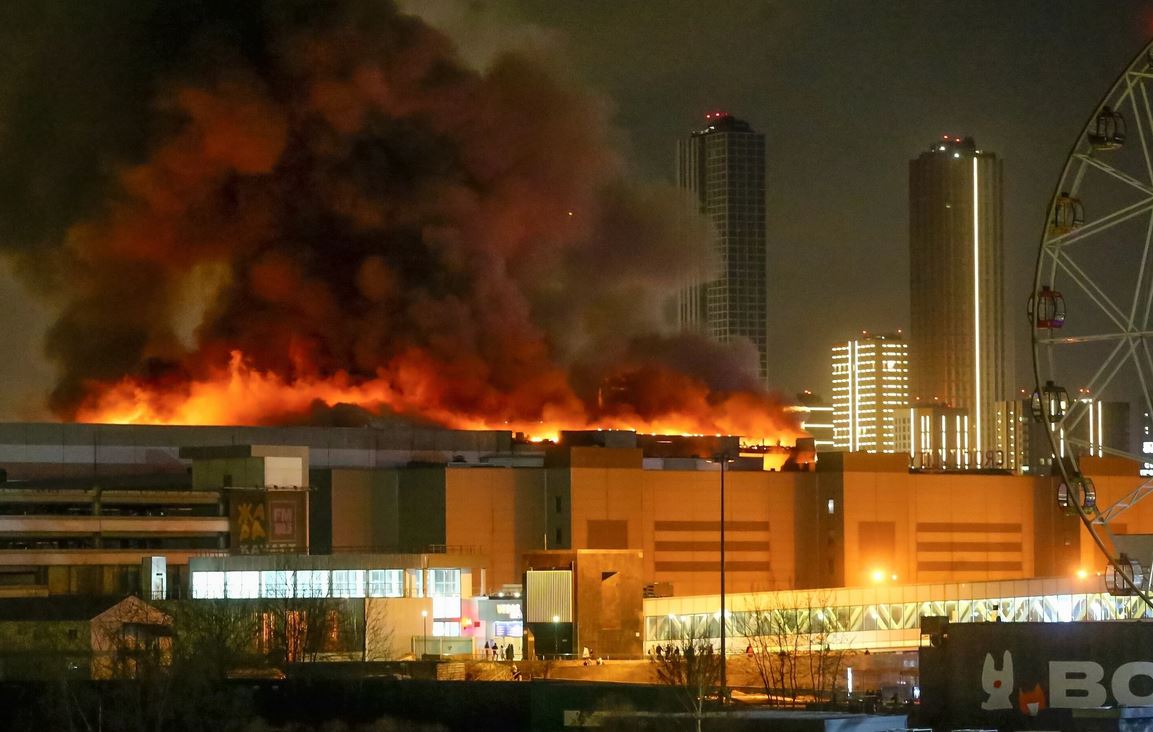
MOSCOW (AP) — Assailants burst into a large concert hall in Moscow on Friday and sprayed the crowd with gunfire, killing over 60 people, injuring more than 100 and setting fire to the venue in a brazen attack just days after President Vladimir Putin cemented his grip on power in a highly orchestrated electoral landslide.
The Islamic State group claimed responsibility for the attack in a statement posted on affiliated channels on social media. A U.S. intelligence official told The Associated Press that U.S. intelligence agencies had learned the group’s branch in Afghanistan was planning an attack in Moscow and shared the information with Russian officials.
It wasn’t immediately clear what happened to the attackers after the raid, which state investigators were investigating as terrorism.
The attack, which left the concert hall in flames with a collapsing roof, was the deadliest in Russia in years and came as the country’s war in Ukraine dragged into a third year. Moscow Mayor Sergei Sobyanin called the raid a “huge tragedy.”
The Kremlin said Putin was informed minutes after the assailants burst into Crocus City Hall, a large music venue on Moscow’s western edge that can accommodate 6,200 people.
The attack took place as crowds gathered for a performance by the Russian rock band Picnic. The Investigative Committee, the top state criminal investigation agency, reported early Saturday that more than 60 people were killed. Health authorities released a list of 145 injured — 115 of them hospitalized, including five children.
Video showed the building on fire, with a huge cloud of smoke rising through the night sky. The street was lit up by the blinking blue lights of dozens of firetrucks, ambulances and other emergency vehicles, as fire helicopters buzzed overhead to dump water on the blaze that took hours to contain.
The prosecutor’s office said several men in combat fatigues entered the concert hall and fired on concertgoers.
Dave Primov, who was in the hall during the attack, described panic and chaos when the attack began.
“There were volleys of gunfire,” Primov told the AP. “We all got up and tried to move toward the aisles. People began to panic, started to run and collided with each other. Some fell down and others trampled on them.”
Videos posted by Russian media and on messaging app channels showed men toting assault rifles shooting screaming people at point-blank range. One video showed a man in the auditorium saying the assailants had set it on fire, as gunshots rang out incessantly.
Guards at the concert hall didn’t have guns, and some could have been killed at the start of the attack, Russian media reported. Some Russian news outlets suggested the assailants fled before special forces and riot police arrived. Reports said police patrols were looking for several vehicles the attackers could have used to escape.
In a statement posted by its Aamaq news agency, the Islamic State group said it attacked a large gathering of “Christians” in Krasnogorsk on Moscow’s outskirts, killing and wounding hundreds. It was not immediately possible to verify the authenticity of the claim.
However, U.S. intelligence officials confirmed the claim by the Islamic State group’s branch based in Afghanistan that it was responsible for the Moscow attack, a U.S. official told the AP.
The official said U.S. intelligence agencies had gathered information in recent weeks that the IS branch was planning an attack in Moscow. He said U.S. officials privately shared the intelligence earlier this month with Russian officials. The official was briefed on the matter but was not authorized to publicly discuss the intelligence information and spoke to the AP on condition of anonymity.
Noting that the IS statement cast its claim as an attack targeting Christians, Aymenn Jawad al-Tamimi, an expert on the terrorist group, said it appeared to reflect the group’s strategy of “striking wherever they can as part of a global ‘fight the infidels and apostates everywhere.
In October 2015, a bomb planted by IS downed a Russian passenger plane over Sinai, killing all 224 people on board, most of them Russian vacation-goers returning from Egypt. The group, which operates mainly in Syria and Iraq but also in Afghanistan and Africa, also has claimed several attacks in Russia’s volatile Caucasus and other regions in the past years. It recruited fighters from Russia and other parts of former Soviet Union.
On March 7, Russia’s top security agency said it thwarted an attack on a synagogue in Moscow by an Islamic State cell, killing several of its members in the Kaluga region near the Russian capital. A few days earlier, Russian authorities said six alleged IS members were killed in a shootout in Ingushetia in Russia’s Caucasus region.
On Friday, statements of outrage, shock and support for those affected by the concert call attack streamed in from around the world.
Some commentators on Russian social media questioned how authorities, who relentlessly surveil and pressure Kremlin critics, failed to identify the threat and prevent the attack.
Russian officials said security was tightened at Moscow’s airports, railway stations and the capital’s sprawling subway system. Moscow’s mayor canceled all mass gatherings, and theaters and museums shut for the weekend. Other Russian regions also tightened security.
The Kremlin didn’t immediately blame anyone for the attack, but some Russian lawmakers were quick to accuse Ukraine and called for ramping up strikes. Hours before the attack, the Russian military l aunched a sweeping barrage on Ukraine’s power system, crippling the country’s biggest hydroelectric plant and other energy facilities and leaving more than a million people without electricity.
Dmitry Medvedev, deputy head of Russia’s Security Council, said that if Ukraine involvement was proven, all those involved “must be tracked down and killed without mercy, including officials of the state that committed such outrage.”
Mykhailo Podolyak, an adviser to Ukrainian President Volodymyr Zelenskyy, denied Ukraine involvement.
“Ukraine has never resorted to the use of terrorist methods,” he posted on X. “Everything in this war will be decided only on the battlefield.”
John Kirby, spokesman for the White House National Security Council, said he couldn’t yet speak about the details but “the images are just horrible. And just hard to watch.”
Friday’s attack followed a statement earlier this month by the U.S. Embassy in Moscow that urged Americans to avoid crowded places in view of “imminent” plans by extremists to target large gatherings in the Russian capital, including concerts. The warning was repeated by several other Western embassies.
National Security Council spokesperson Adrienne Watson said Friday the U.S. government had information about a planned attack in Moscow, prompting the State Department advisory to Americans. The U.S. government shared the information with Russian authorities in accordance with its longstanding “duty to warn” policy, Watson said.
Putin, who extended his grip on Russia for another six years in this week’s presidential vote after a sweeping crackdown on dissent, denounced the Western warnings as an attempt to intimidate Russians. “All that resembles open blackmail and an attempt to frighten and destabilize our society,” he said earlier this week.
Russia was shaken by a series of deadly terror attacks in the early 2000s during the fighting with separatists in the Russian province of Chechnya.
In October 2002, Chechen militants took about 800 people hostage at a Moscow theater. Two days later, Russian special forces stormed the building and 129 hostages and 41 Chechen fighters died, most from effects of narcotic gas Russian forces use to subdue the attackers.
In September 2004, about 30 Chechen militants seized a school in Beslan in southern Russia taking hundreds of hostages. The siege ended in a bloodbath two days later and more than 330 people, about half of them children, were killed.
You May Like This
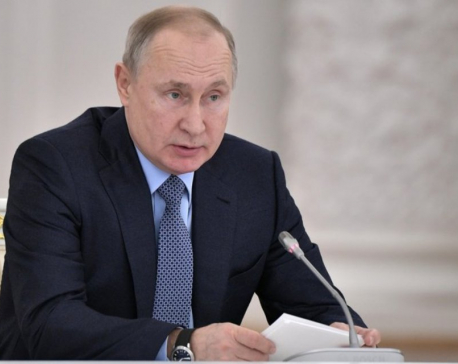
Russian radio stations hacked, played fake Putin message
MOSCOW, June 6: Several Russian radio stations were hacked and played a fake President Vladimir Putin speech announcing an invasion... Read More...
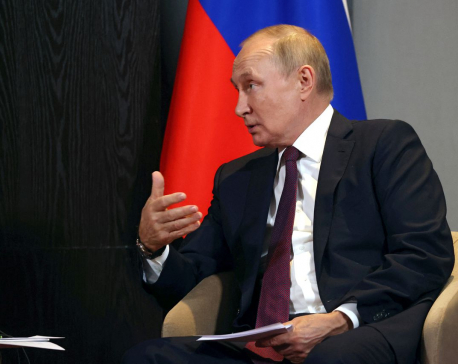
With a grin, Putin warns Ukraine: the war can get more serious
SAMARKAND, Uzbekistan, Sept 17: President Vladimir Putin on Friday brushed off a lightning Ukrainian counter-offensive with a smile but warned... Read More...
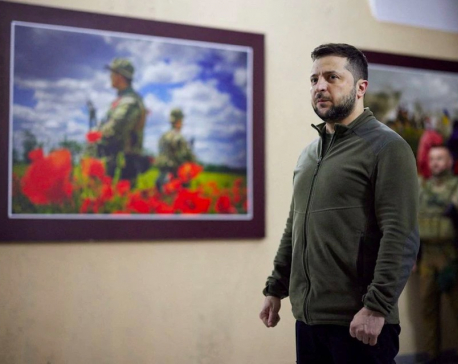
Ukraine leader demands Western nations give arms, asks if they're afraid of Moscow
LVIV, Ukraine, March 27: Ukrainian President Volodymyr Zelenskiy, visibly irritated, on Saturday demanded Western nations provide a fraction of the... Read More...




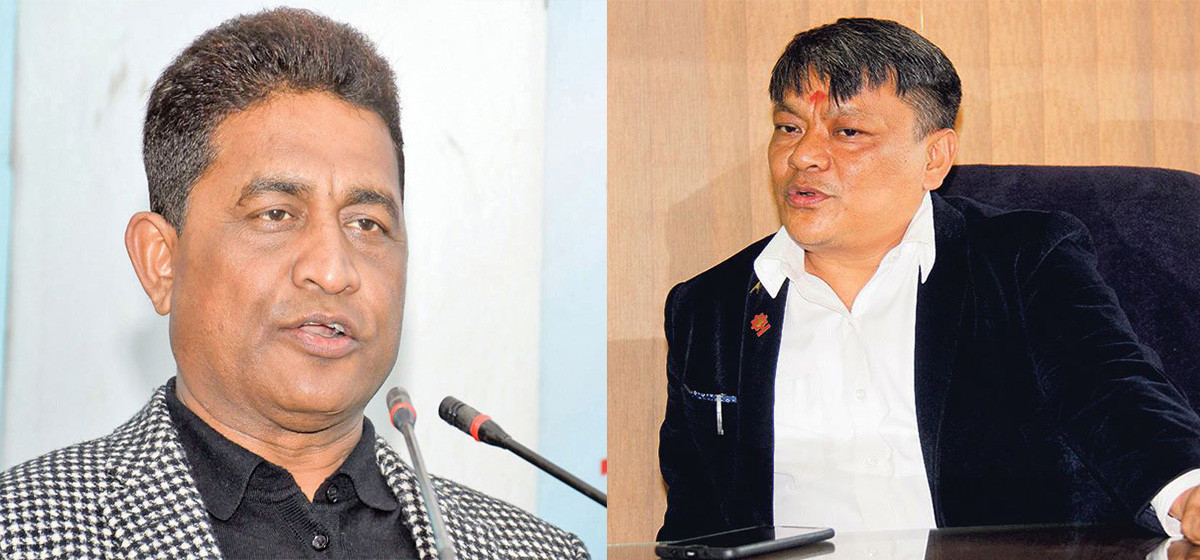
Just In
- Former DoTM employee Bhatta arrested in connection with illegal license issuance case
- One killed in a fire incident in Dadeldhura
- JSP Central Executive Committee meeting being held today to discuss national convention representative election guidelines
- KMC adjust office hours, services now start at 9AM
- Five-match T20 series: first match between West Indies 'A' and Nepal starts today
- Govt yet to pay Rs 60 billion to contractors
- Nepal’s poorest district identified as Bajura, richest as Mustang
- Wind storm likely at a few places of Koshi and Sudurpaschim








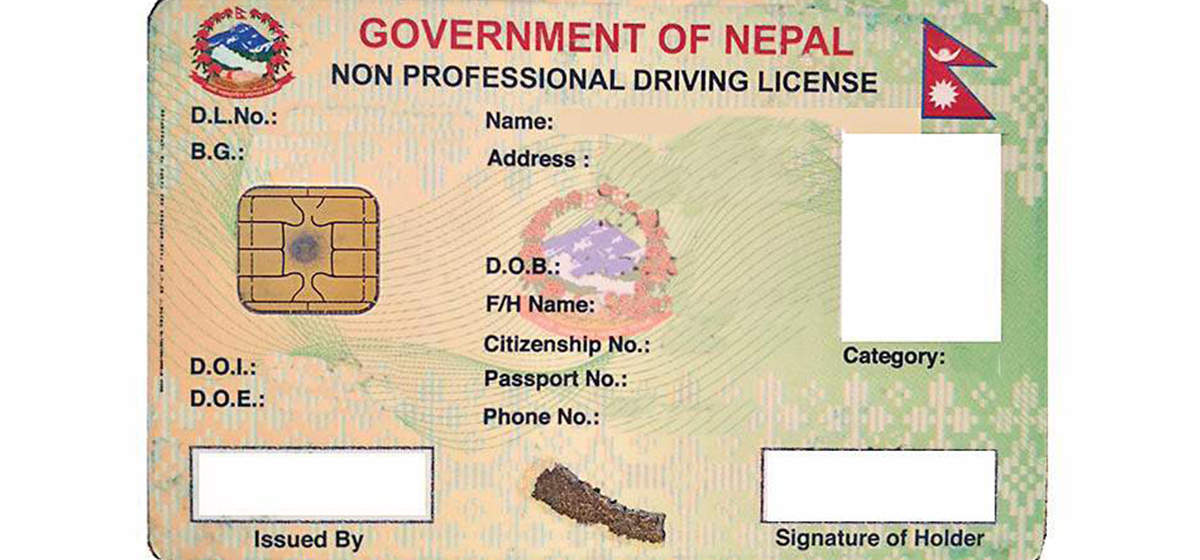
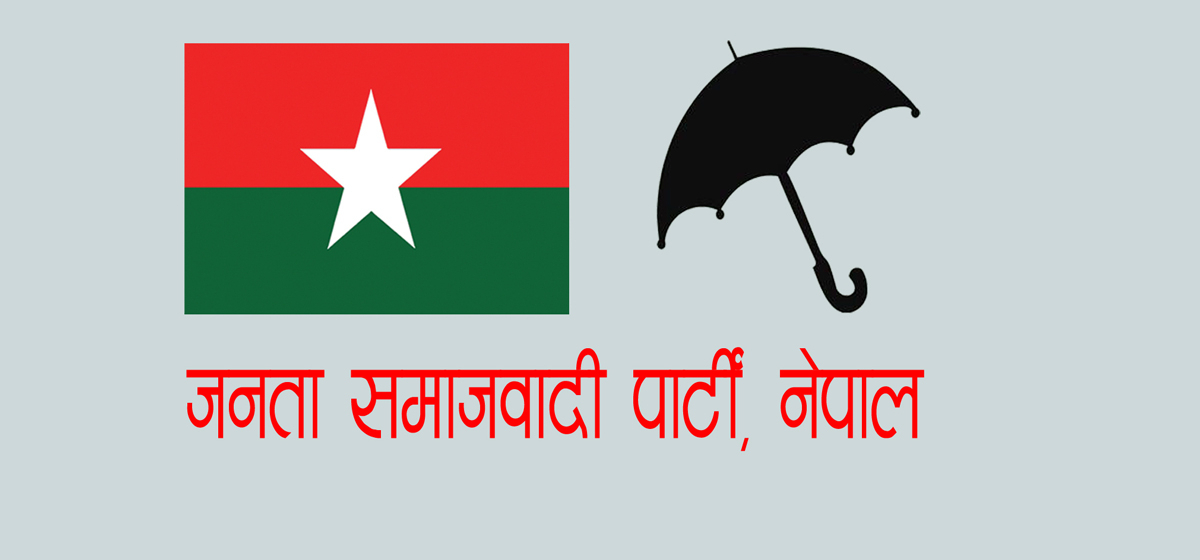

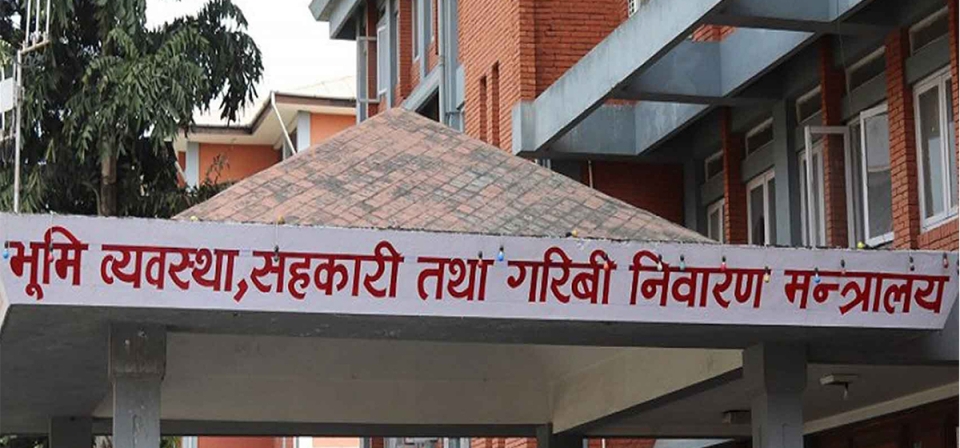

Leave A Comment